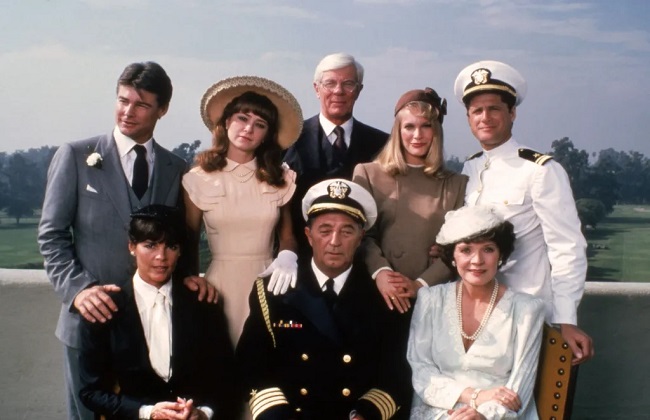
Herman Wouk’s 1971 novel The Winds of War traced the romance, bravery, fear, and faith required for American youths to join the military, deploy to the war zones, and confront the mighty Axis threat in the lead-up to WW II. It later became a dramatic TV series.
Today multitudes around the world are increasingly affected by ongoing conflicts, or are living in societies so disordered that they might even welcome war as a solution to their problems.
The news on just one day in June 2024 was not reassuring: The US and NATO agreed to unleash Ukraine to attack Russia; Israel thumbed its nose at American demands to end its genocidal war in Gaza; Hezbollah bombarded northern Israel for the umpteenth time and Israel reciprocated.
Yemen exchanged missile attacks with US warships in the Red Sea; while Israel and Iran engaged in slinging hundreds of Intercontinental ballistic missiles at each other.
Meanwhile, China announced that any attempt to award sovereignty to Taiwan would receive a strong military response. Only a few days later on July 4 at Astana in Kazakhstan, Russia and China convened a bloc of their Eurasian allies for the Shanghai Cooperation Organization to stake out a policy of resistance to Euro-American control of the world economy.
Equally sobering, Japan and the Philippines have just initiated a defense alliance that echoes Japan’s security zone posture in WW II. All these moves signify that the great powers are indeed readying for war.
Elsewhere major regional wars in Sudan and Congo are ongoing; Haiti is in bloody chaos, and the same is true of several countries in West Africa, namely Mali, Niger, and Burkina Faso, which recently formed the Alliance of Sahel States to oppose the Economic Community of West African States (ECOWAS).
Political destabilization within nations is in the balance everywhere, from Myanmar and Bangladesh to Europe and Latin America, with an astounding political division in the United States as well. What could possibly go wrong?
The real problem in America and the West is one of cultural fatigue, with a lack of clear focus on what course to follow, as we had in both World Wars and the Cold War. A “War to End Wars,” like the WW I rallying cry, would not fly today.
Neither would “Make the World Safe for Democracy” as both world wars aimed to do; or “Better Dead than Red,” the slogan of the Cold War. Instead, it’s “Ho-hum, another war.” Not very inspiring.
The Ostrich is famous for sticking its head in the sand when danger approaches. With wars simmering all around, Americans may be practicing that same tactic. There was a disquieting moment at the June 6 D-Day ceremony in Normandy commemorating the 80th anniversary of the allied assault on the Nazi defenses during WW II.
In her prayer, US Army Chaplain Karen Meeker gave thanks for those who sacrificed their lives and blessed the surviving heroes at the ceremony, but also used an ominous phrase: “As war clouds gather….”
Does she know something the rest of us don’t? Probably so, and it is disquieting. War clouds are indeed gathering. All we need to do is pay attention to the news, listen to the statements of key leaders of many of the great powers, and read the headlines. It is hard to miss the central theme: that the world is becoming more and more ungovernable.
At a conference in Tallinn, Estonia during May, Yale Historian Timothy Snyder suggested that the present time reminds him of Europe in 1938, just before the start of WW II. That should frighten everybody. His warning means that unless something extraordinary prevents it, an expanding, generalized conflict may lie ahead.
Among today’s most urgent problems are the ongoing genocidal war in Gaza, the bloody and seemingly endless Russia-Ukraine War, and regional wars in Sudan, Congo, and Myanmar.
The growing East-West economic divide and the North-South poverty gap appear intractable. If these conflicts expand, global civilization is facing a world of hurt.
Maybe that’s why a tough guy image like that cultivated by our more pugnacious presidents like Andrew Jackson and Teddy Roosevelt remains so appealing today, along with a larger than life “John Wayne” type of fictional character. However, it’s never that simple, and there is always a price to be paid.
Roosevelt’s son Quentin died in the very war his father advocated so fiercely. The Greek historian Herodotus recorded the sage but painful observation that, “In times of peace, sons bury their fathers; in times of war, fathers bury their sons.”
What then is to be done? Perhaps the US could start by ending support for the blood-lust killing of so many defenseless civilians in Gaza. All it would take is for President Biden to have the guts to say no to an ally and mean it. On Taiwan vs. China and Iran vs. Israel and the US, why not sit and talk with our adversaries?
That simple tactic has worked before. Why not at least start a meaningful peace process in Sudan and Congo? It may take a long time, but peace is always better than war.
At the US Academics for Peace conferences we convened in Iraq, Iran, Syria, and Sudan over the decades before and after the US invasion of Iraq, we advocated the principle that dialogue is essential or conflict is inevitable.
Why not try? It might work.
James E. Jennings, PhD is President of Conscience International and Executive Director of US Academics for Peace.

